Dangerous Foods?
Because they're such picky eaters, we sometimes think cats know what’s best for them when it's time to eat. But the fact they'll walk away from a piece of bad meat doesn't mean they'll bypass an open can of tuna. And, that can of tuna can be just as dangerous. In fact, you may be surprised to learn some of the common foods your cats should never eat.
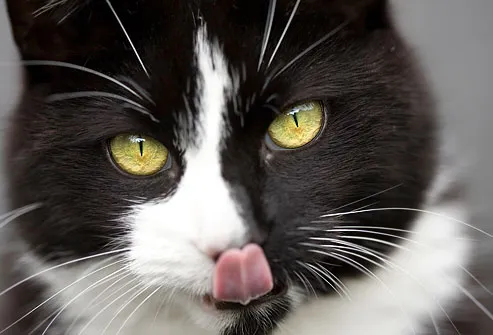
Tuna
Cats can be addicted to tuna, whether it's packed for cats or for humans. Some tuna now and then probably won't hurt. But a steady diet of tuna prepared for humans can lead to malnutrition because it won't have all the nutrients a cat needs. And, too much tuna can cause mercury poisoning. Remember the saying, "Honest as a cat when the meat’s out of reach." Your cat will see an open can of tuna next to the sink as a dinner invitation.
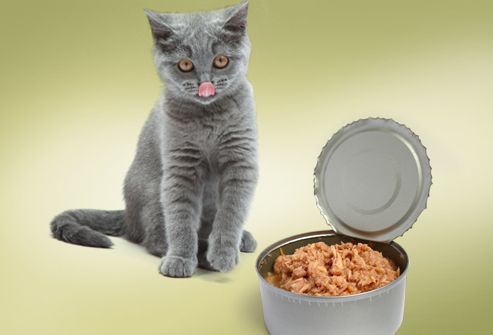
Onions, Garlic, Chives
Onion in all forms - powdered, raw, cooked, or dehydrated - can break down a cat's red blood cells, leading to anemia. That's true even for the onion powder that's found in some baby foods. An occasional small dose probably won’t hurt. But eating a large quantity once or eating smaller amounts regularly can cause onion poisoning. Along with onions, garlic and chives can cause gastrointestinal upset.
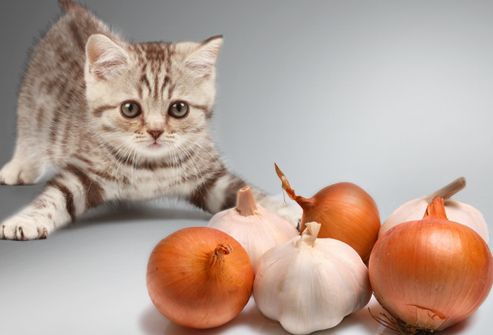
Milk and Other Dairy Products
What could be wrong with offering your cat a saucer of milk, or a piece of cheese? Although kittens, with their undeveloped digestive system, are able to tolerate milk, most adult cats cannot. Their digestive system is simply not designed to process rich dairy foods, and the result can be digestive upset, and can lead to food allergies (which often manifest as itchiness).
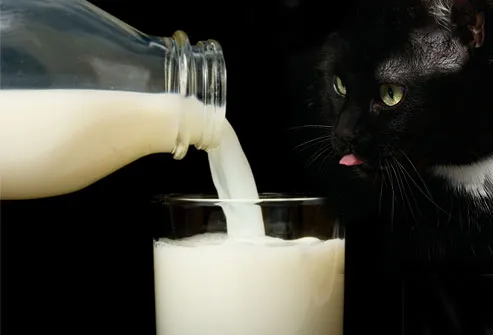
Alcohol
Beer, liquor, wine, foods containing alcohol -- none of it is good for your cat. That's because alcohol has the same effect on a cat's liver and brain that it has on humans. But it takes far less to do its damage. Just two teaspoons of whisky can cause a coma in a 5-pound cat, and one more teaspoon could kill it. The higher the proof, the worse the symptoms.
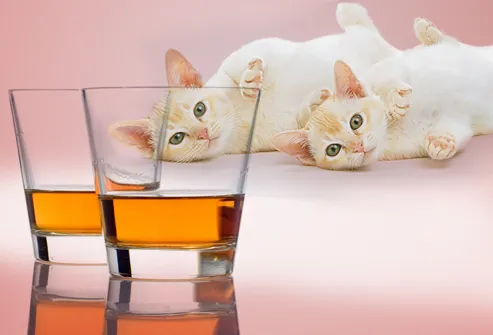
Grapes and Raisins
Grapes and raisins have often been used as treats for pets. But it's not a good idea. Although it isn't clear why, grapes and raisins can cause kidney failure in cats. And, a small amount can make a cat ill. Repeated vomiting and hyperactivity are early signs. Although some cats show no ill effects, it's best not to give your cat any grapes and to keep grapes and raisins off countertops and other places accessible to your cat.
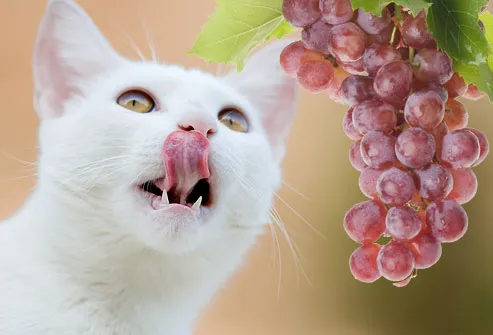
Coffee, Tea, and Other Caffeine
Caffeine in large enough quantities can be fatal for a cat. And, there is no antidote. Symptoms of caffeine poisoning include restlessness, rapid breathing, heart palpitations, muscle tremors, fits, and bleeding. In addition to tea and coffee -- including beans and grounds -- caffeine can be found in cocoa, chocolate, colas, and stimulant drinks such as Red Bull. It's also in some cold medicines and pain killers.
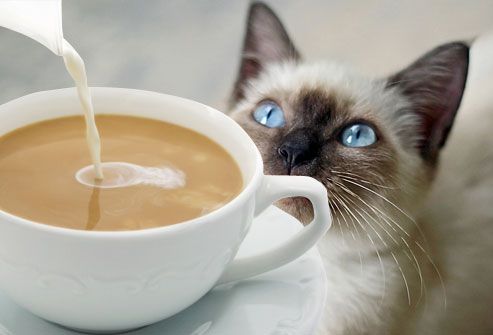
Chocolate
Chocolate can be lethal for cats. Although most cats won't eat it on their own, they can be coaxed to eat it by owners and others who think they are giving the cat a treat. The toxic agent in chocolate is theobromine. It's in all kinds of chocolate, even white chocolate. The most dangerous kinds, though, are dark chocolate and unsweetened baking chocolate. Eating chocolate can cause abnormal heart rhythm, tremors, seizures, and death.
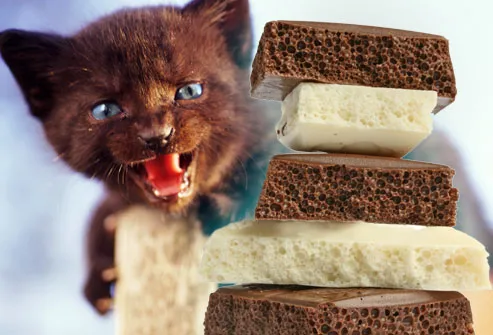
Candy and Gum
Candy, gum, toothpaste, baked goods, and some diet foods are sweetened with xylitol. Xylitol can cause an increase in the insulin circulating through your cat's body. That can cause the cat's blood sugar to drop and lead to liver failure. Initial symptoms include vomiting, lethargy, and loss of coordination. Eventually, the cat may have seizures, and liver failure can occur within just a few days.
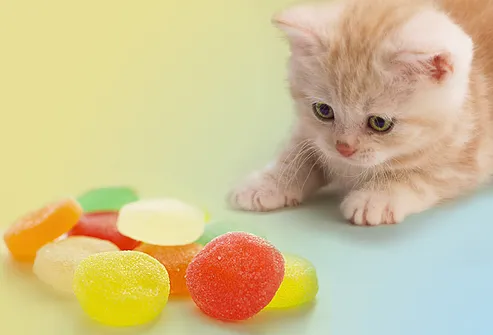
Fat Trimmings and Bones
Table scraps often contain fat trimmed off of meat and bones. Both are dangerous for cats. Fat trimmed from meat, both cooked and uncooked, can cause pancreatitis. And, a cat can choke on a bone. Bones can also splinter and cause an obstruction or lacerations of your cat's digestive system.







0 nhận xét:
Đăng nhận xét